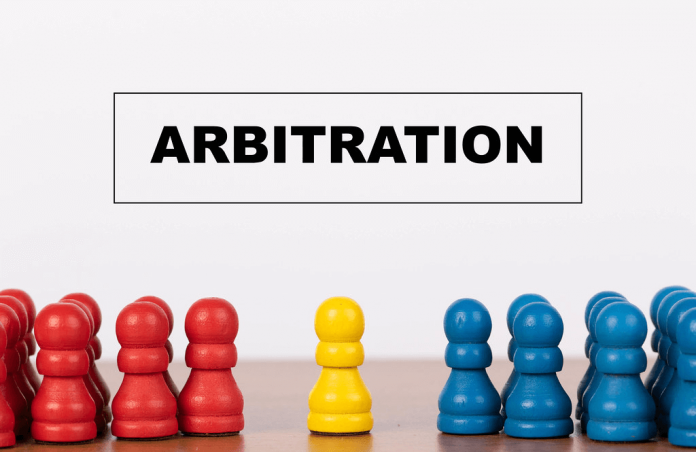This article is written by Rahul pursuing Certificate Course in Arbitration: Strategy, Procedure and Drafting from LawSikho.com.
Introduction
The seat of arbitration is an essential concept which determines which court would supervise the arbitration proceeding, enforce the arbitral award and entertain any challenge to such award. Such a court has been defined under Section 2 (e) clause (i) and clause (ii) of the Arbitration and Conciliation Act, 1996 (“the Arbitration Act”) for domestic arbitration and international commercial arbitration respectively. Courts for the purpose of domestic arbitration include the principal Civil Court of original jurisdiction in a district and the High Court in the exercise of its original civil jurisdiction. On the other hand, a court for the purpose of international commercial arbitration includes the High Court in the exercise of its ordinary civil jurisdiction or a High Court having jurisdiction to hear appeals from decrees of its subordinate courts.
Notably, the Arbitration Act refers to the “seat of arbitration” as a “place of arbitration” that has created confusion among the arbitration fraternity. Section 20 (1) of the Arbitration Act gives freedom to the parties to agree on the place of arbitration. However, if the parties fail to agree on the place of arbitration, the arbitral tribunal has been empowered under sub-section (2) to determine the place of arbitration considering the relevant circumstances of the case and the convenience of the parties. The arbitral tribunal in absence of the parties’ agreement has been further empowered under sub-section (3) to meet at any appropriate place to consult its members, to hear witnesses, experts, or the parties, or for inspection of documents, goods, or other property. It can be noted that “place of arbitration” appears to have different meanings in different subsections of Section 20 of the Arbitration Act. Place of arbitration under sub-section (3) refers to the “venue” of arbitration. On the other hand, sub-sections (1) and (2) apparently refer to both the seat of arbitration and the venue of arbitration. Fortunately, the Supreme Court clarified in Bharat Aluminium Company v. Kaiser Aluminium Technical Services Inc (BALCO) that “place of arbitration” in sub-section (1) and (2) should be considered as “seat of arbitration” and “venue of arbitration” respectively. Thus, the present article will refer to “seat of arbitration” and “venue of arbitration” to avoid any further confusion.
Although Section 20 of the Arbitration Act empowers the parties to choose a seat of arbitration, the territorial jurisdiction of a court of law generally cannot be chosen or decided by the parties except in the circumstances mentioned here. The territorial jurisdiction has been conferred on civil courts by the Civil Procedure Code (“the CPC”) within whose jurisdiction:
- The immovable property as the subject matter of the suit is situated,
- The cause of action arises,
- The defendant (s) actually and voluntarily resides,
- The defendant (s) works for personal gains,
- The defendant (s) carries on business.
In cases where the immovable property is the subject matter of the suit, the court within whose jurisdiction the immovable property is situated exercises exclusive jurisdiction over the suit. However, in other cases, as highlighted in points (b) to (e), multiple courts may have concurrent jurisdiction over a particular suit. However, the parties are permitted to agree on a particular court to have exclusive jurisdiction among the courts having concurrent jurisdiction. The Supreme Court in BALCO held that both the courts within whose territorial jurisdiction the cause of action arises and within whose jurisdiction arbitration takes place in order to enjoy jurisdiction. However, if the parties have agreed over a particular place that would be neutral to both the parties then the courts of the agreed place will exercise supervisory jurisdiction over the arbitration.
The judicial confusion
As highlighted above, although the Arbitration Act gives the parties freedom to agree on the seat of arbitration, however, such freedom was initially limited as they were permitted to choose a seat only among the courts which have jurisdiction under the CPC. In other words, the parties were not allowed to choose supervisory courts which do not possess jurisdiction under the CPC. This was a settled approach of the Indian courts that parties cannot by contractual agreement confer jurisdiction over a court that does not have jurisdiction under the CPC or any other applicable law. The Delhi High Court in Indus Mobile Distribution Pvt. V. DataWind Innovations Pvt. Ltd. has taken a similar approach and ousted the jurisdiction of Mumbai courts which was agreed as the seat of arbitration between the parties. The High Court reasoned that since no part of the cause of action arose in Mumbai, therefore Mumbai courts do not have jurisdiction over the disputes. According to the court, cause of action arose in Delhi and Chennai (from and where goods were supplied), and Amritsar (where the registered office of the Appellant was situated), and therefore, the courts of these places only enjoy jurisdiction over the disputes.
However, the Supreme Court rightly overruled the decision of the Delhi High Court and held that once the parties mutually agree to designate a court of competent jurisdiction under Section 2 (1) (e) of the Arbitration Act as the seat of arbitration, such court (s) would have exclusive jurisdiction to entertain disputes concerning the arbitration. The Supreme Court reasoned that the seat of the arbitration under the Arbitration Law is a concept where the parties can mutually decide a seat of arbitration regardless of the courts therein actually having jurisdiction under Sections 16 – 20 of the CPC. It clarified that even though no part of the cause of action arises in the seat of arbitration, the courts therein still have jurisdiction to entertain the disputes concerning the arbitration. Thus, the Mumbai courts would have exclusive jurisdiction to entertain any dispute arising out of the arbitration.
Nevertheless, the Calcutta High Court in Hinduja Leyland Finance Ltd. v. Debdas Routh & Anr. digressed with the decision of the Supreme Court in the Indus Mobile case and held that the parties cannot confer a court with exclusive jurisdiction under the seat of arbitration unless the court originally has statutory jurisdiction under the CPC to entertain the matter. The Delhi High Court again followed a similar plight in Antrix Corporation Ltd. v. Devas Multimedia Pvt. Ltd. and held that parties’ freedom to choose the seat of arbitration does not amount to a right of exclusive forum selection. The High Court reasoned that if the seat of arbitration is treated equivalent to an exclusive forum selection clause, then parties’ agreement on a seat would render Section 42 ineffective.
However, the Supreme Court once again in BGS SGS Soma JV v. NHPC Ltd. overruled the decisions of the Calcutta High Court and Delhi High Court. The Supreme Court clarified that the said High Courts failed to note that the BALCO enforced the “exclusive jurisdiction” of the courts within the agreed seat of the arbitration. The court further addressed the concern of the Delhi High Court in Antrix Corporation Ltd. regarding the ineffectiveness of Section 42 of the Arbitration Act. It clarified that the intention of Section 42 is to avoid any conflict in the jurisdiction of courts by vesting exclusive jurisdiction to supervise an arbitration proceeding in one court exclusively. That is the reason why the Section starts with a non-obstante clause and goes on to state “…where with respect to an arbitration agreement any application under this Part has been made in a Court…” It is obvious that the court before which an application is filed will have jurisdiction to entertain the matter. Accordingly, where the seat of arbitration is agreed between the parties, only courts of the seat will have exclusive jurisdiction over the arbitration proceedings and application therefrom. Thus, Section 42 is not at all rendered ineffective by parties’ agreement on the seat of arbitration.
The court went further and addressed the issue of jurisdiction of courts where the arbitration agreement does not specify the seat or venue of arbitration. In such a situation, multiple courts within whose jurisdiction the part of the cause of action arises may have jurisdiction, however, the court before which the first application is made will have the exclusive jurisdiction to supervise the arbitration proceeding and incidental matters thereto. However, where the parties have provided only the venue of the arbitration proceeding in the arbitration agreement, such venue of arbitration proceedings will be considered as the seat of arbitration as it indicates the parties’ intention to settle the disputes at a particular place.
Conclusion
According to generalia specialibus non derogant which is commonly applied while interpreting conflicting provisions of two statutes, a special law always prevails over a general law. The CPC is a general code that provides procedures for deciding the disputes arising from general contractual relationships. It does not limit or affect any special law, or any special jurisdiction conferred on a court under any other law for the time being in force. The Arbitration Act is a special law codified to govern arbitration proceedings and recognises the principle of party autonomy by giving the parties freedom to choose courts under the seat of arbitration that will have supervisory jurisdiction. Thus, the provisions of the Arbitration Act should prevail over the general provisions of the CPC. Consequently, special jurisdiction conferred on the court through parties’ agreement must not be limited or affected by the provisions of the CPC. Hence, the approach of the Supreme Court has been right in upholding the exclusive jurisdiction of the courts of the seat of arbitration irrespective of requirements mentioned under Section 16-20 of the CPC.
Students of Lawsikho courses regularly produce writing assignments and work on practical exercises as a part of their coursework and develop themselves in real-life practical skills.
LawSikho has created a telegram group for exchanging legal knowledge, referrals, and various opportunities. You can click on this link and join:
 Serato DJ Crack 2025Serato DJ PRO Crack
Serato DJ Crack 2025Serato DJ PRO Crack











 Allow notifications
Allow notifications


